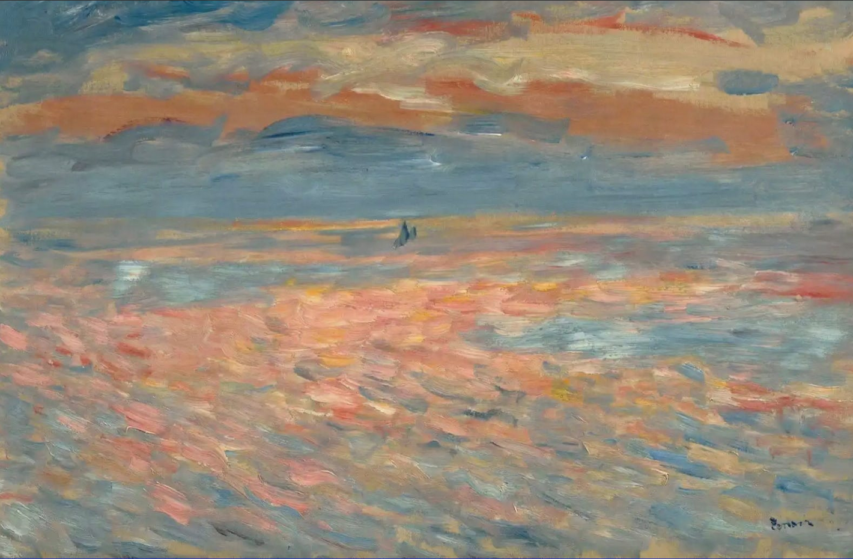Chris Bray visits an art museum and shares some thoughts provoked by his experiences:
There’s a moment, in a museum supported by a deep permanent collection, when you transition from glowing oil paint depictions of Lord Major Fluffington P. Farnsworth-Hadenwallace, Seventh Earl of Wherever, Ninth Duke of Someotherplace, posing in his lordly estate with a bowl of fruit and his array of status decorations, to the shocking emergence of late-19th century innovations in painting, and you find yourself thinking that huh, this Renoir dude really knew his stuff, like you’re the first person to ever notice.
These explosive moments of creativity were usually social: artists gathering, talking, seeing the work of other artists and thinking about new ways of seeing and showing. Individual acts of artistic liberation appeared in the context of an emerging cultural freedom. Renoir and Monet hung out together.
You can see the tide coming in and going out. You can watch enormous waves of joyful innovation, or — respectful nod to the German Expressionists — anxious and anguished innovation. It’s on the wall: here’s the moment when people experienced unusual freedom of vision. You can see artists pursuing beauty with disciplined attention, in a cultural atmosphere that allows the pursuit.
And it’s just so abundantly clear that something opened in the world, somewhere between 1870 and … 1950? Or so? And then it began to close, and the closure recently began picking up force. There are periods of general creativity and periods of general stultification and retrenchment; there was one Italian Renaissance, one Scottish Enlightenment, and so on. Weimar Germany, sick as it was, fired more brilliant art into the world in twenty years than many cultures produce in a period of centuries, though a certain teenager who lives in my house would like you to know that Fritz Lang sucks and please stop with those boring movies and I’ll be in my room.
So it seems to me that the first part of the cultural cycle is the making phase, the period of astonishing innovation; then comes the consolidation and appreciation, the moment the heirs to sewing machine fortunes show up and notice how good everything is; then comes the phase when a few monk-equivalents try to keep the record of accomplishment alive in the context of a hostile or indifferent culture, while most institutions reject innovation and turn to scolding, wrecking, and cannibalization. The fifth Indiana Jones movie. She-Hulk. Like that. I just spent twenty minutes in a Barnes and Noble, and the “new fiction” section may still be making me feel tired next week.
We’re living through a decline in fertility — in literal fertility, in rates of people being married and making babies and hanging around to raise children — at the moment when cultural fertility also seems to be going into freefall. Your results may vary, but I’m finding the moment manageable, largely with piles of earlier books and the occasional sprint to a place like the Clark. Fecundity and sterility appear in cycles, but you can time travel. You can reach back. Mary McCarthy got me through June, and Willa Cather is helping with July. Evelyn Waugh covered roughly February through May.
If you’re near the Berkshires, a worthwhile Edvard Munch exhibit is around until mid-October.
It’s very strange to be in the river and then to suddenly notice that it isn’t running — you’ve hit a long stretch of dead water, so still it starts to stink. I assume it will pass. But until then …




